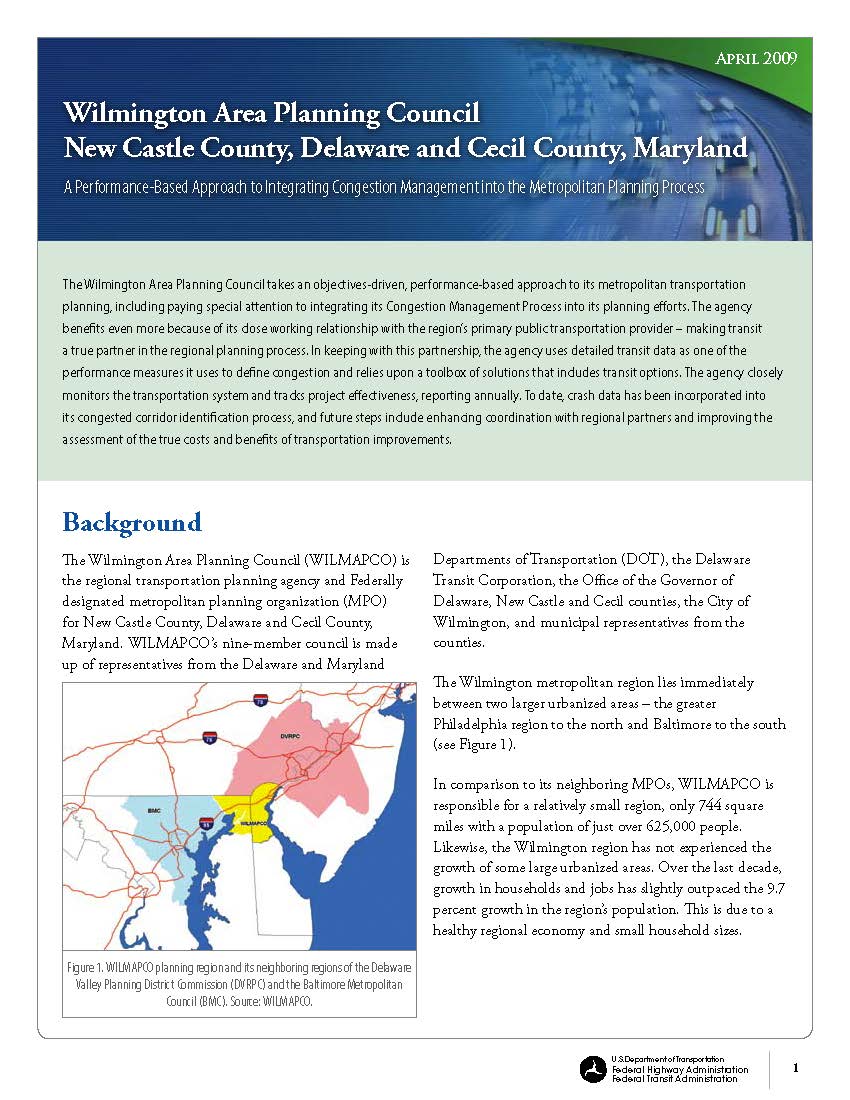Overview
 A strategic approach to planning for operations that is guided by specific objectives and regular performance measurement will help ensure that the most effective operations strategies are incorporated into transportation plans. In many regions around the country, agencies are already applying elements of this approach in a variety of ways. This case study is just one example of where this is being done.
A strategic approach to planning for operations that is guided by specific objectives and regular performance measurement will help ensure that the most effective operations strategies are incorporated into transportation plans. In many regions around the country, agencies are already applying elements of this approach in a variety of ways. This case study is just one example of where this is being done.
The Wilmington Area Planning Council takes an objectives-driven, performance-based approach to its metropolitan transportation planning, including paying special attention to integrating its Congestion Management Process into its planning efforts. The agency benefits even more because of its close working relationship with the region's primary public transportation provider – making transit a true partner in the regional planning process. In keeping with this partnership, the agency uses detailed transit data as one of the performance measures it uses to define congestion and relies upon a toolbox of solutions that includes transit options. The agency closely monitors the transportation system and tracks project effectiveness, reporting annually. To date, crash data has been incorporated into its congested corridor identification process, and future steps include enhancing coordination with regional partners and improving the assessment of the true costs and benefits of transportation improvements.